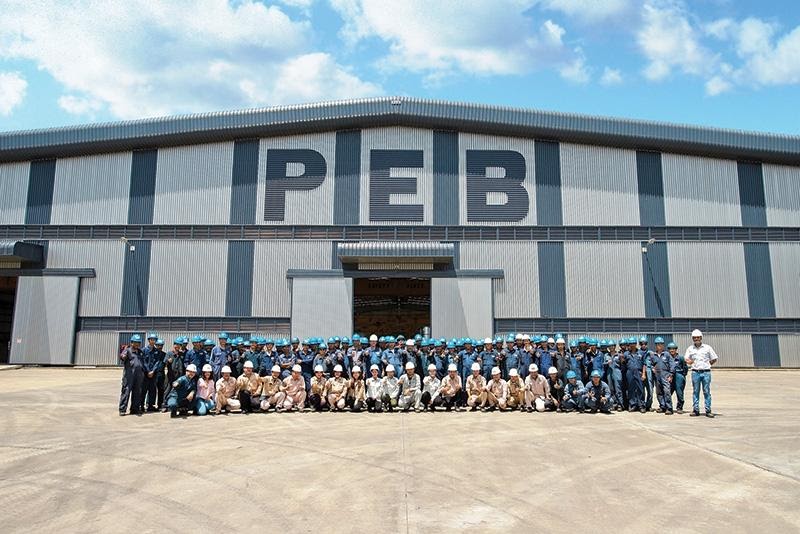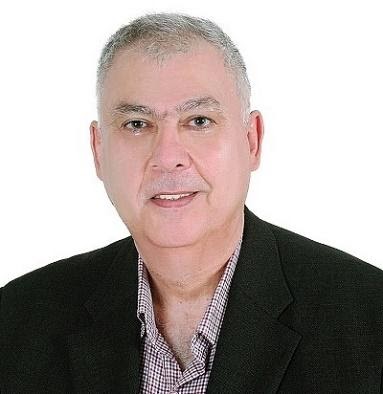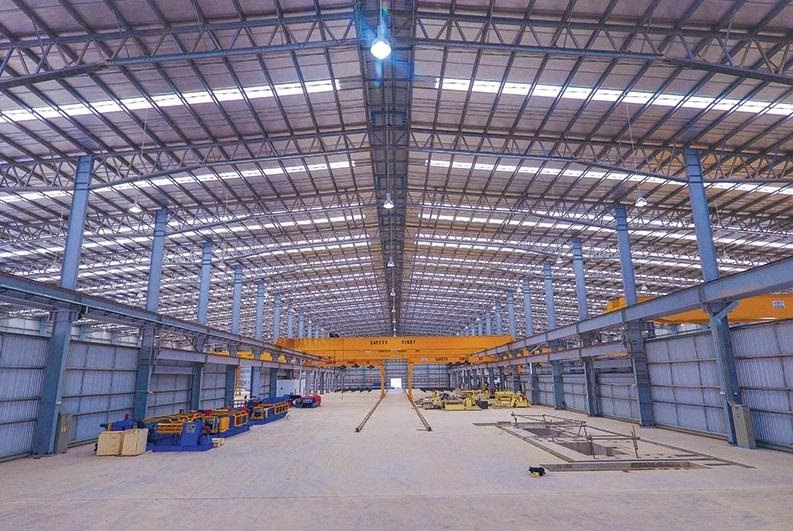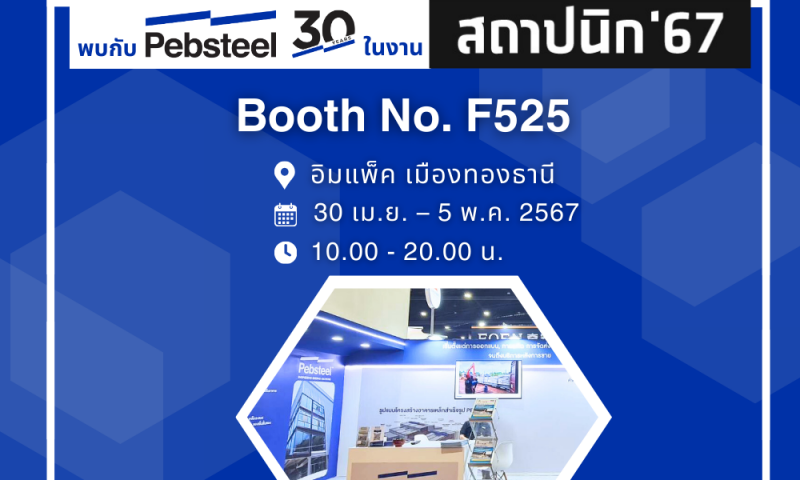A real leader is someone who sees opportunities in difficulties, learns from mistakes, and uses their knowledge to nurture the next generation of leaders. It is the mantra that Adib Kouteili, co-founder and director of PEB Steel Buildings, has consistently used during his 25 years in the steel industry.

Adib Kouteili stepped foot in Vietnam two and a half decades ago fresh from his managerial position in Malaysia, which he described as a “comfortable country to live” for expatriates. Unlike Malaysia, Vietnam at the time was in its early development stage, and hardships were prevalent in the country. While many others scoffed at investing in Vietnam, Kouteili and his positive mindset saw an opportunity in the very new market.

However, the path to success in Vietnam was not easy, as it involved a lot of trial and error. Kouteili used this sense of tenacity to set up PEB Steel Buildings with his brother Sami Kteily, pioneering the concept of pre-engineered buildings (P.E.B.) in Vietnam. Today, one of PEB Steel Buildings’ most well-known innovations on the market is PEBFoamTM, which solves the problem of insulation products with fiberglass that can be harmful to workers’ health.
Other innovations also came after months or years of research, observing the market, listening to feedback, and overcoming failures. PEB Steel Buildings is also famous for using convection mechanisms to improve ridge vents, which is important for ventilation inside buildings. Another example is replacing painted sag arrestors that are prone to rust and take a long time to paint or dry. The company instead galvanizes these arrestors, improving their durability and appearance.
At first, the ground-breaking technology failed because it was vastly different from the one-size-fits-all approach to steel products at the time. However, soon enough, buyers in Vietnam realized that P.E.B. was superior to ready-made steel because it is tailored to each construction project.
The company’s hard work and perseverance have paid off. From a factory with less than 100 workers, PEB Steel now runs six factories in the southern province of Vung Tau, one factory in Yangon in Myanmar, eight sales offices, and one headquarters in Vietnam, employing a total number of more than 1,000 people across various functions.
The company, under the leadership of both Kouteili and Kteily, has served 6,000 buildings in Vietnam and many more in far-flung markets. The company posted a historic revenue figure of more than $100 million in 2018, which represents a growth of 30 percent on-year.
The most recent achievement for the company is the VinFast automobile factory in the northern port city of Haiphong, for which PEB Steel provided the structure. The company is the largest supplier of steel structures for the complex and is also the sole foreign contractor to implement P.E.B. technology at the site.
Kouteili said with a smile that 85 percent of constructors in the market now use P.E.B. – an incredible feat in just a quarter of a century. From just one small group in 1994, there are now at least 200 companies in the P.E.B. technology sector, providing jobs to 750,000 people across Vietnam.

The can-do mantra
When asked by VIR about his management style and the secret that drove PEB Steel Buildings towards success, Kouteili replied that he believes in involving staff members in the business and giving them the right tools and the authority to do so.
For example, anyone who complains about procedures or products at PEB Steel Buildings will be given a chance to propose solutions. The employee will then be given time, money, and a team to test these solutions and if they make mistakes in the process, they can try again. Kouteili believed that this approach turns “complainers” into “doers”, and inspires them to be strong leaders in the future.
“You have to care about them and involve them directly in the process because they’ll learn much better this way. We make people believe they can do it, and I am very proud to say that many managers at other steel companies in Vietnam used to be our trainees,” said Kouteili.
To do this, leaders also need to have strong emotional intelligence, because the ability allows them to ask for market feedback, listen to others, and learn from failures. This is deeply ingrained in the corporate culture of PEB Steel Buildings.
Regarding the possibility of “leaking” trade secrets to outsiders in the coaching process at PEB Steel Buildings, the steel veteran said that this reality forces him and the company to constantly innovate and part ways with competitors. As soon as people know about their trade secret, PEB Steel will come up with new technologies and methods – and of course, fail and learn in the process.
Leaving a legacy behind
In response to VIR’s question about his legacy, Kouteili said he would want to be known as someone who constructs not just buildings – but the next generation of leaders.
According to Kouteili, this will make him happier than any business results, which explains why he has been a strong supporter of training programs at PEB Steel Buildings and across various universities. Donations made by the company to universities in Vietnam have reached VND1.5 billion ($65,200) so far.
Kouteili said his favorite trainees are those who think beyond themselves and their achievements to provide solutions to the market. The biggest lesson that he shows trainees is that leaders must be willing to improve, truly care about people and possess a strong sense of integrity. They should also be open to new ideas.
This is also the message that he taught his two children, who are now teenagers about to start university life. The steel veteran allowed his son and daughter to experience the world via exchange programs, and seek solutions to any missteps they made in the process. This is how soon-to-be adults can thrive in the bigger world outside of their home, insisted Kouteili.
Thanks to his achievements in the steel industry, Kouteili was recently appointed as an honorary ambassador of Lebanon in Vietnam, as well as earning commendations from Canadian business groups. In June, the businessman also received a third-class labor medal from the Vietnamese government, granted to organizations and individuals that have made major contributions to the country.
“I’ll continue to nurture the next generations of leaders in Vietnam, and I believe that this is the most sustainable way to go for the future,” said Kouteili.









